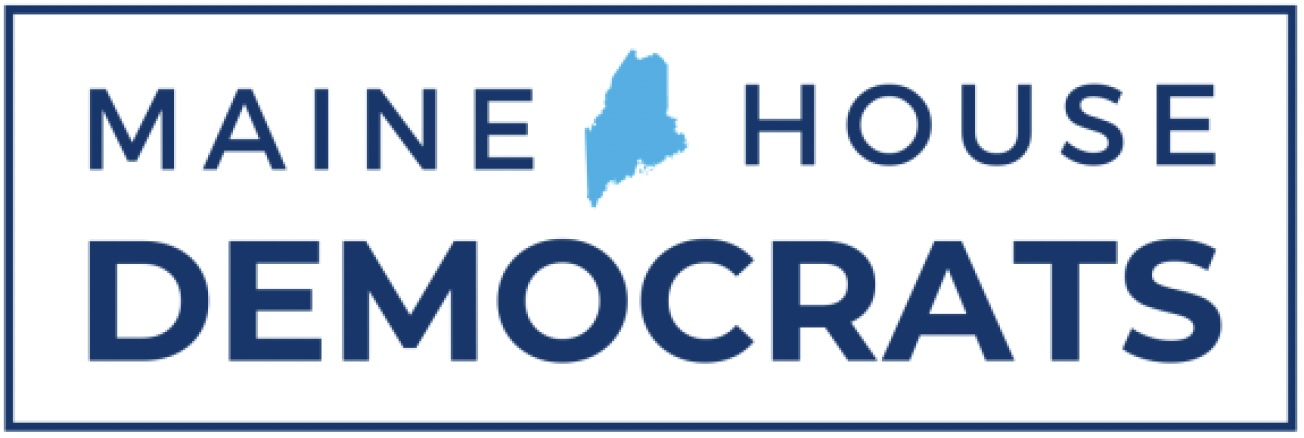AUGUSTA - The Maine Legislature voted Monday to fund the Family Caregiver Pilot Program, a program that will provide $2,000 tax credit payments to eligible Mainers who care for older family members or family members with disabilities. The funding measure was included in LD 1733, the bill to allocate the federal relief funds from the American Rescue Plan Act (ARPA).
Rep. Kristen Cloutier, D-Lewiston, sponsored the measure to provide tax credits for family caregivers, which passed through the House and Senate with unanimous, bipartisan support. Serving on the Appropriations and Financial Affairs Committee, Cloutier worked with her colleagues on the committee to allocate economic support to the roughly 181,000 Mainers caring for family members who need assistance with daily life.
"This issue is personal for me. I was a family caregiver until my mom passed away in 2018 from Alzheimer's disease," said Cloutier. "In 2017, it was estimated that family members in Maine provided 152 million hours of unpaid care, worth $2.2 billion annually. It is time we finally recognize caregiving as the valuable work that it is. The Family Caregiver Program is an important step in providing caregivers with the financial support they need and deserve, and I am so grateful that we will be able to use federal relief funds to run this pilot program."
A 2016 report from the National Academies of Sciences, Engineering and Medicine stated that, although family caregivers play an integral role in the care of older adults and people with disabilities, family caregivers are at great risk of economic harm because many caregivers have to leave their jobs or reduce their hours in order to provide unpaid care and supervision for their family members. The report recommended the adoption of policies that provide economic support for working caregivers.
Cloutier's legislation was supported by the Maine Center for Economic Policy, the Maine Council on Aging, Maine Equal Justice, AARP Maine and many other organizations.
"In addition to stretching resources and making everyday life harder, the coronavirus pandemic illuminates cracks in the support systems of our society," said Garrett Martin, executive director of the Maine Center for Economic Policy. "One out of 10 Mainers provides care for a relative at home, and the financial and emotional costs for this unpaid frontline workforce are substantial. Providing aid to caregivers is an important first step in making sure Maine families have the support they need and highlights the potential for federal recovery dollars to strengthen systems that create long-term opportunity."
"Family caregivers are the backbone of Maine's long-term care system, and, without their caring, our system would collapse," said Jess Maurer, executive director of the Maine Council on Aging. "By including funding for the Family Caregiver Pilot Program in ARPA, legislators are demonstrating a commitment to people who provide this critical care, often at their own economic loss. The $2,000 grants to caregivers will help family caregivers overcome the challenges of finding and paying for home care and respite care, and keep some working caregivers in the workforce longer."
"At Maine Equal Justice, we hear from low-income Mainers through our legal services helpline, including families for whom care from a relative is the only affordable option," said Ann Danforth, a policy advocate with Maine Equal Justice. "During the COVID-19 pandemic, as finances have become even tighter and as people have sought to keep older loved ones safe, many people have taken on caregiving responsibilities. The Family Caregiver Program will help many Maine families receive much-needed compensation for this work."
Under the Family Caregiver Pilot Program, an eligible family caregiver who is not otherwise receiving payment for their caregiving may receive up to $2,000 a year. No later than Oct. 1, 2021, the Maine Department of Health and Human Services will convene a stakeholder group to assist in designing the pilot program, and the program will provide $2,000 grants to eligible caregivers from Oct. 1, 2022 to Sept. 30, 2024. The expenditures for the pilot program are capped at $5.1 million.
Contact:
Jackie Merrill [Cloutier], c. 812-1111

